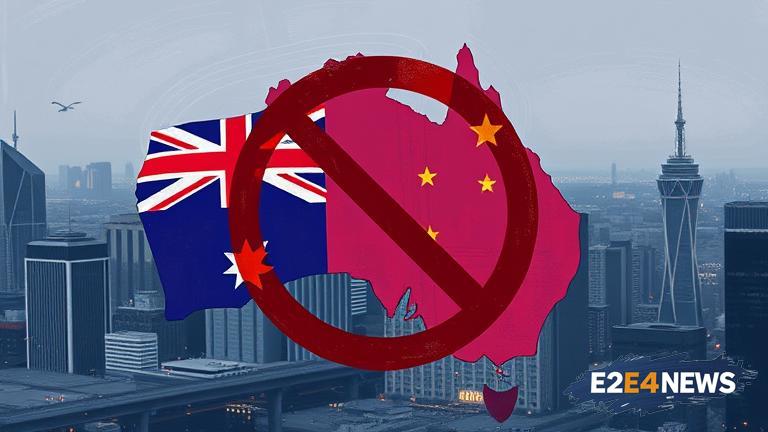The Australian government has been at the forefront of internet regulation, with a focus on age verification and online censorship. The country’s laws require internet service providers to block access to certain websites and online content, sparking concerns over censorship and privacy. The government’s efforts to regulate the internet have been met with criticism from advocacy groups and internet users, who argue that such measures are an overreach of power and a threat to online freedom. The age verification laws, in particular, have raised concerns about the potential for abuse and the impact on online anonymity. The laws require internet users to provide identification and proof of age to access certain online content, which has sparked concerns about data privacy and security. The Australian government has argued that the laws are necessary to protect children and vulnerable individuals from online harm, but critics argue that such measures are overly broad and could have unintended consequences. The country’s internet censorship laws have also been criticized for being overly restrictive, with many websites and online services being blocked without due process. The government’s use of internet filtering technology has also raised concerns about the potential for abuse and the impact on online freedom. The Australian government has faced criticism from international human rights organizations, which have argued that the country’s internet censorship laws are in breach of international human rights standards. The laws have also been criticized for being overly vague, with many internet users and website owners unsure about what content is allowed and what is not. The Australian government has argued that the laws are necessary to protect national security and prevent online crime, but critics argue that such measures are an overreach of power and a threat to online freedom. The country’s internet regulation laws have also had an impact on the online economy, with many businesses and website owners being forced to comply with the new regulations. The laws have also raised concerns about the potential for censorship and the impact on online discourse, with many internet users and advocacy groups arguing that the laws could be used to silence dissenting voices. The Australian government has faced criticism from the tech industry, which has argued that the laws are overly broad and could have unintended consequences. The country’s internet censorship laws have also been criticized for being overly restrictive, with many internet users and website owners being forced to use virtual private networks (VPNs) to access blocked content. The use of VPNs has raised concerns about the potential for abuse and the impact on online security, with many internet users and advocacy groups arguing that the laws could be used to target certain groups or individuals. The Australian government has argued that the laws are necessary to protect children and vulnerable individuals from online harm, but critics argue that such measures are overly broad and could have unintended consequences. The country’s internet regulation laws have also had an impact on the online community, with many internet users and advocacy groups arguing that the laws could be used to silence dissenting voices. The laws have also raised concerns about the potential for censorship and the impact on online discourse, with many internet users and advocacy groups arguing that the laws could be used to target certain groups or individuals. The Australian government has faced criticism from international human rights organizations, which have argued that the country’s internet censorship laws are in breach of international human rights standards. The laws have also been criticized for being overly vague, with many internet users and website owners unsure about what content is allowed and what is not. The Australian government has argued that the laws are necessary to protect national security and prevent online crime, but critics argue that such measures are an overreach of power and a threat to online freedom.





